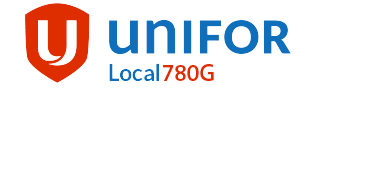 WHAT IS A UNION?
WHAT IS A UNION?
A union is a group of working people, of various backgrounds, who are striving for a common goal – the protection of workers’ rights and the improvement of working conditions, wages and benefits.
HOW WOULD A UNION BENEFIT ME?
Without a union your terms and condition of work, including pay, benefits, scheduling, vacations etc. are set arbitrarily by your employer and can be changed at any time. With a union you have a real, legal, guaranteed voice in decisions that affect you in the workplace. A union means having a collective agreement that protects what you have and allows you the right to negotiate improvements. A collective agreement that brings fairness and consistency to the workplace and will make sure everyone is treated equally.
WHAT IS A COLLECTIVE AGREEMENT?
Collective agreements cover all aspects of work from wages and benefits to hours of work, vacations and health and safety. Collective agreements are legally binding on the employer and the union.
CAN I BE FIRED OR DISCIPLINED FOR SUPPORTING THE UNION?
No. It is your legal right to join a union. Employers cannot interfere with your right to support and join a union. In fact, it is illegal for employers to threaten or harass in any way for supporting a union at your workplace (as long as you are not doing it on company time).
WILL MANAGEMENT KNOW I HAVE SIGNED AMEMBERSHIP CARD?
No. All cards are confidential. Management will never see the cards or know you have signed a card. Only the Labour Board will see the signed cards.
WHY IS MY EMPLOYER OPPOSED TO ME HAVING A UNION
Your employer, quite naturally, does not want to have a union in your workplace. Without a union, employers can make whatever decisions they want, at any time, without regard to the effect it may have on you and your family. With a union all of your working conditions are in writing, in a legally binding document, which cannot be arbitrarily changed by your employer.
I HAVE HEARD THAT THERE IS NO GUARANTEE THAT COLLECTIVE BARGAINING WILL LEAD TO IMPROVEMENTS AND THAT I COULD LOSE SOME OF THE THINGS I HAVE NOW.
While there are no guarantees in life, it is a fact, statistically, union workers enjoy better wages and working conditions than non-union workers. Under Canadian labour law your current conditions, including all benefits are frozen once the union has applied for certification. That means your current employment terms are the starting point for negotiations. All benefits that you want retained can be written into the collective agreement, and once part of the agreement would not be subject to change except through negotiation between the union and the company. In a non-union environment these benefits can be taken away at any time by the company. A union will enable you to protect what you already have.
I AM BEING TOLD THAT THE UNION IS A “THIRD PARTY” AND WILL NOT ALLOW ME TO SOLVE MY OWN PROBLEMS WITH MY MANAGER. IS THIS TRUE?
No. With a union you can still resolve personal workplace problems with your manager. What a union gives you is the added advantage of being able to pursue your complaint further if it cannot be resolved between you and your manager. All union contracts have a grievance procedure that allows you to take your complaint to a higher level of management if you feel it has not been satisfactorily resolved. You will also have the assistance of a trained representative to help you argue your case. If the problem is still not resolved the union can take it to arbitration, where a neutral arbitrator will make a decision, which is binding on the company.
WHAT ABOUT STRIKES?
Strikes are very rare. 97% of union contracts are settled without a strike. Unifor has experienced negotiators who are skilled in reaching satisfactory agreements. If you do go on strike it will be the decision of your workplace members alone. A strike cannot happen without majority support from your bargaining unit members.
WHAT ABOUT DUES?
Unifor is a non-profit membership organization. It is funded entirely from members’ dues. Delegates to the national convention vote on the portion of dues that goes to the National Union. Local unions set their own dues, voted on by the members of the local. Local dues cover the cost of local union administration, including the cost of negotiations and grievances. The union does not collect dues until you have achieved a first contract and remember that in Canada union dues are tax deductable.
